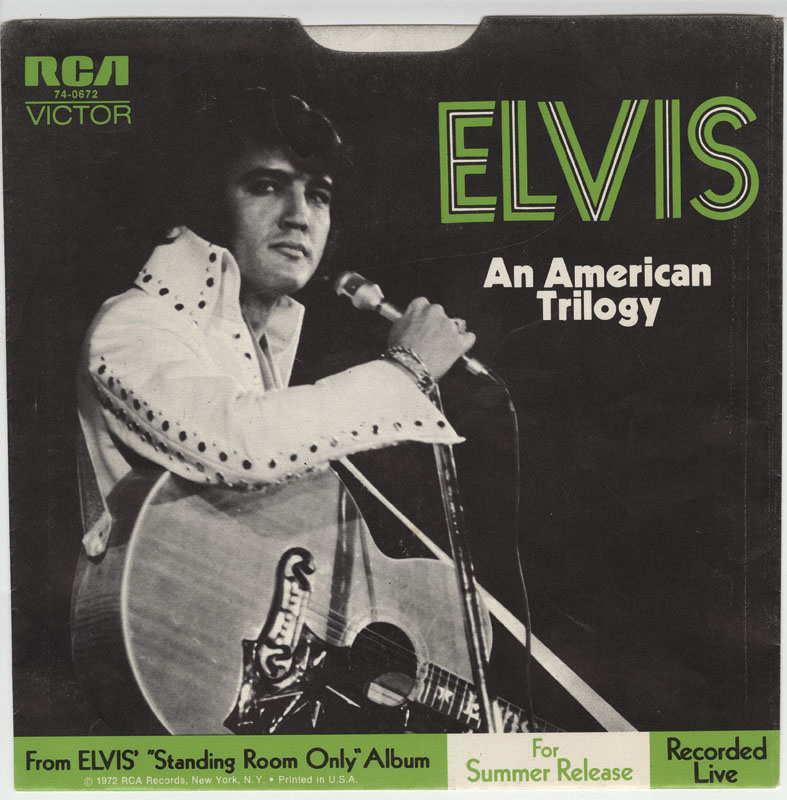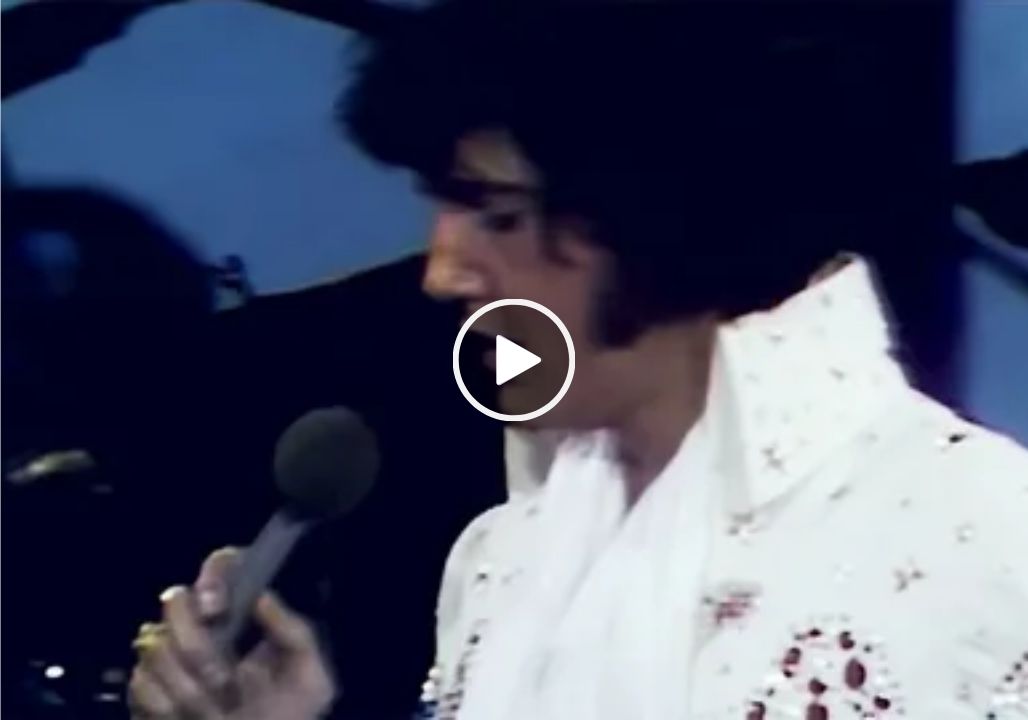Introduction

The King Takes on a Trilogy: The Story of Elvis Presley’s “An American Trilogy”
Elvis Presley, the undisputed King of Rock and Roll, surprised audiences in 1972 with a powerful and introspective medley titled “An American Trilogy.” This wasn’t your typical Elvis song. Instead, it was a carefully crafted arrangement by country songwriter Mickey Newbury, weaving together three iconic pieces of American history:
-
“Dixie” (1859): A familiar and sometimes controversial song associated with the American South. Its nostalgic lyrics evoke a longing for the pre-Civil War era.
-
“All My Trials” (Spiritual): A haunting African American folk song, its origins likely lie in the Bahamas. The lyrics speak of enduring hardship and seeking solace in faith.
-
“The Battle Hymn of the Republic” (1861): A stirring anthem of the Union during the Civil War, its message celebrates freedom and perseverance.
Newbury’s genius lay in contrasting these songs. “Dixie” represents the Lost Cause narrative of the Confederacy, while “The Battle Hymn” embodies the fight to abolish slavery. “All My Trials” adds a layer of resilience, reflecting the struggles of African Americans throughout history.
Elvis first performed “An American Trilogy” live in 1972, and a recording from that year quickly became a hit single. His powerful vocals and dramatic delivery brought new depth to these familiar melodies. More than just a song, “An American Trilogy” became a showstopping centerpiece of his concerts, a moment of reflection on the complexities of American identity.
So, as the opening chords of “Dixie” begin, prepare for a journey through the heart of America. Elvis Presley will guide you through a tapestry of nostalgia, struggle, and ultimately, hope for a united nation. This is “An American Trilogy.”
